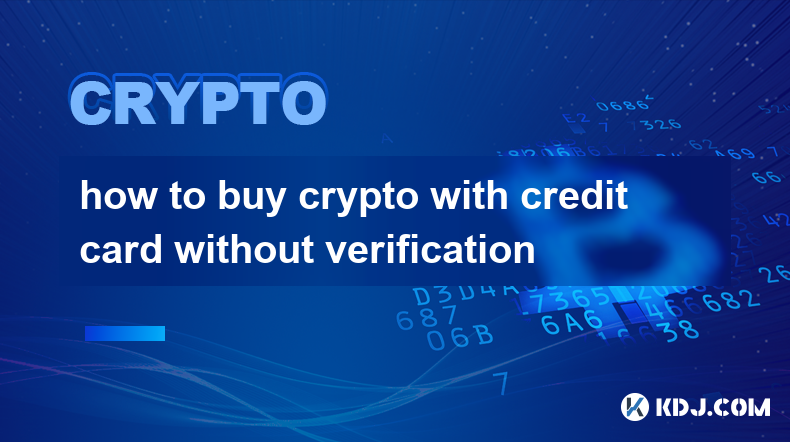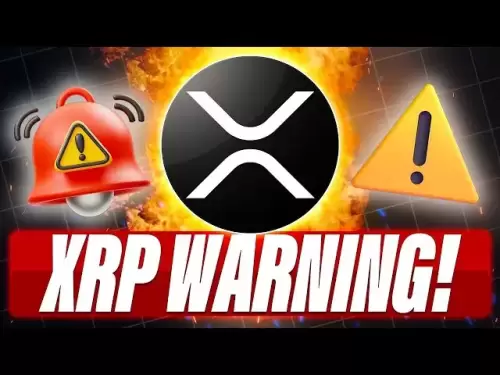-
 Bitcoin
Bitcoin $104,832.3171
-0.65% -
 Ethereum
Ethereum $2,467.7835
-4.30% -
 Tether USDt
Tether USDt $1.0001
-0.02% -
 XRP
XRP $2.3480
-3.62% -
 BNB
BNB $645.4138
-1.28% -
 Solana
Solana $164.2320
-6.67% -
 USDC
USDC $0.9999
0.00% -
 Dogecoin
Dogecoin $0.2212
-6.12% -
 Cardano
Cardano $0.7357
-4.91% -
 TRON
TRON $0.2650
-2.94% -
 Sui
Sui $3.7548
-5.68% -
 Chainlink
Chainlink $15.4601
-5.19% -
 Avalanche
Avalanche $22.0821
-6.99% -
 Stellar
Stellar $0.2823
-4.85% -
 Hyperliquid
Hyperliquid $25.8203
-4.65% -
 Shiba Inu
Shiba Inu $0.0...01437
-5.68% -
 Hedera
Hedera $0.1910
-4.25% -
 UNUS SED LEO
UNUS SED LEO $8.6227
-0.95% -
 Bitcoin Cash
Bitcoin Cash $386.0904
-5.07% -
 Litecoin
Litecoin $97.7246
-3.87% -
 Toncoin
Toncoin $2.9696
-6.36% -
 Polkadot
Polkadot $4.5607
-6.98% -
 Monero
Monero $344.0415
0.01% -
 Bitget Token
Bitget Token $5.1487
-1.86% -
 Pepe
Pepe $0.0...01319
-5.51% -
 Dai
Dai $0.9999
0.01% -
 Pi
Pi $0.7220
-3.75% -
 Ethena USDe
Ethena USDe $1.0004
0.00% -
 Uniswap
Uniswap $5.8506
-7.20% -
 Bittensor
Bittensor $404.6541
-7.52%
how to buy crypto with credit card without verification
Understanding the legal framework of KYC and AML regulations is crucial for ensuring compliance and preventing illegal activities in the cryptocurrency market.
Jan 30, 2025 at 11:24 am

Key Points:
- Understanding the Importance of Age and Identity Verification
- Analyzing the Legal Framework of KYC and AML Regulations
- Exploring Alternative Methods to Purchase Crypto Without ID
- Evaluating the Security Risks Involved in Anonymous Cryptocurrency Purchases
- Trustworthy P2P Cryptocurrency Marketplaces
- KYC-Free Brokers: A Step-by-Step Guide
- Non-Custodial Wallets: Enhancing Security and Privacy
- FAQs
- Glossary
How to Buy Crypto with Credit Card Without Verification: A Comprehensive Guide
Understanding the Importance of Age and Identity Verification
Purchasing cryptocurrencies often requires age and identity verification due to regulations aimed at combating financial fraud and protecting minors from financial risks. Most centralized exchanges and platforms implement strict Know Your Customer (KYC) and Anti-Money Laundering (AML) protocols to verify users' identities.
Analyzing the Legal Framework of KYC and AML Regulations
KYC and AML regulations vary across jurisdictions and are enforced by financial regulatory bodies. Compliance with these regulations helps prevent illegal activities such as money laundering, fraud, and terrorist financing. By verifying customer identities, platforms mitigate risks and maintain regulatory compliance.
Exploring Alternative Methods to Purchase Crypto Without ID
For those seeking anonymity, there are alternative methods to purchase cryptocurrencies without ID verification:
- Peer-to-Peer Marketplaces: These decentralized platforms allow direct transactions between individuals, eliminating the need for intermediaries.
- KYC-Free Brokers: Some brokers allow crypto purchases using credit cards without KYC verification, offering higher anonymity but potentially higher risks.
- Non-Custodial Wallets: These allow users to hold their cryptocurrencies securely without involving third parties. They provide greater control and privacy but require technical knowledge.
Evaluating the Security Risks Involved in Anonymous Cryptocurrency Purchases
While anonymous crypto purchases offer increased privacy, they carry certain security risks:
- Scams and Fraud: Unverified platforms may be more susceptible to fraudulent activities.
- Legal Consequences: Engaging in anonymous crypto purchases may violate regional regulations and could lead to legal implications.
- Loss of Funds: Non-custodial wallets require strong security measures to protect against hacks and theft.
Trustworthy P2P Cryptocurrency Marketplaces
Reputable P2P marketplaces such as Bisq, Hodl Hodl, and LocalBitcoins allow anonymous crypto purchases through escrow systems and reputation mechanisms to ensure trust and safety.
KYC-Free Brokers: A Step-by-Step Guide
- Choose a KYC-Free Broker: Research and select a reputable broker that offers crypto purchases without ID verification.
- Create an Account: Register an account with the broker using basic information.
- Verify Your Payment Method: Link your credit card or other payment method without providing personal details.
- Purchase Crypto: Make your crypto purchase using the provided payment method.
Non-Custodial Wallets: Enhancing Security and Privacy
- Choose a Non-Custodial Wallet: Select a reputable non-custodial wallet such as Exodus, Trezor, or Ledger.
- Create a New Wallet: Generate a new crypto wallet and save the private key securely.
- Receive Crypto: Provide your wallet address to the sender to receive cryptocurrencies.
FAQs
Is it Legal to Buy Crypto with Credit Card Without Verification?
The legality of anonymous crypto purchases varies across jurisdictions. It is essential to check local regulations before engaging in such transactions.
What are the Risks of Buying Crypto Without Verification?
Anonymous crypto purchases carry risks of scams, legal consequences, and loss of funds due to security vulnerabilities.
Glossary
- KYC: Know Your Customer
- AML: Anti-Money Laundering
- P2P: Peer-to-Peer
- Escrow: A trusted third party that holds funds until certain conditions are met
- Non-Custodial Wallet: A wallet where users hold their cryptocurrencies without third-party involvement
Disclaimer:info@kdj.com
The information provided is not trading advice. kdj.com does not assume any responsibility for any investments made based on the information provided in this article. Cryptocurrencies are highly volatile and it is highly recommended that you invest with caution after thorough research!
If you believe that the content used on this website infringes your copyright, please contact us immediately (info@kdj.com) and we will delete it promptly.
- Bitcoin eyes $107K as early Monday volatility sparks ATH hopes—if momentum holds, meme coin BRETT could rally strongly in the coming weeks.
- 2025-05-20 00:35:13
- Dubai's VARA Announces New Compliance Deadline of June 19 for Crypto Exchanges
- 2025-05-20 00:35:13
- Russian Authorities Arrest Vladimir Smerkis, Co-Founder of Telegram-Based Crypto Platform Blum, on Fraud Charges
- 2025-05-20 00:30:13
- The crypto markets faced a huge bearish action throughout the past week, while the bullish push during the weekend revived the possibility of a healthy recovery.
- 2025-05-20 00:30:13
- The correlation between stocks and crypto appears to be showing no sign of slowing down soon
- 2025-05-20 00:25:13
- GoMining Institutional Launches GM Alpha Blocks Fund, Targeting $100M in Capital Commitments
- 2025-05-20 00:25:13
Related knowledge

What is Ethereum’s Slashing mechanism and how to punish malicious behavior?
Feb 20,2025 at 03:08am
Key PointsOverview of slashingDifferent types of slashing in EthereumIncentives and consequences of slashingIdentifying and reporting slashed validatorsOngoing discussions and potential improvementsEthereum's Slashing Mechanism: Punishing Malicious BehaviorEthereum's slashing mechanism is an essential tool for ensuring network security and punishing mal...

What is the verifier node of Ethereum and how to become a verifier?
Feb 19,2025 at 06:00pm
The Verifier Node of Ethereum: A Comprehensive GuideKey Points:What is a Verifier Node?How to Become a Verifier NodeResponsibilities and Rewards of a Verifier NodeMinimum Requirements for Becoming a Verifier NodePotential Difficulties in Running a Verifier Node1. What is a Verifier Node?A Verifier Node is an independent entity on the Ethereum network th...

What is Ethereum’s staking, and how to participate and earn money?
Feb 19,2025 at 04:37pm
Key Points:Understanding Ethereum's Staking MechanismSteps to Participate in StakingBenefits and Rewards of StakingSecurity and Risk ConsiderationsTechnical Requirements and Hardware OptionsPotential Challenges and Troubleshooting TipsFAQs on Ethereum StakingWhat is Ethereum's Staking?Proof-of-Stake (PoS) is a consensus mechanism used in blockchain netw...

What is Ethereum’s DAO (Decentralized Autonomous Organization) and how does it work?
Feb 20,2025 at 03:12am
Key PointsDefinition and Structure of a DAOGovernance and Decision-Making in DAOsBenefits and Use Cases of DAOsChallenges and Limitations of DAOsWhat is Ethereum's DAO (Decentralized Autonomous Organization) and How Does It Work?Definition and Structure of a DAOA Decentralized Autonomous Organization (DAO) is an innovative governance and management fram...

What is Ethereum's multi-signature wallet and how to improve security?
Feb 20,2025 at 02:18pm
Key Points:Understanding the Concept of a Multi-Signature WalletBenefits and Drawbacks of Multisig WalletsRequirements for Setting Up a Multisig WalletStep-by-Step Guide to Generating a Multisig WalletImplementing Strategies for Enhanced Security1. Understanding the Concept of a Multi-Signature WalletA multi-signature (multisig) wallet in the Ethereum e...

What is Ethereum's oracle and how to provide data for smart contracts?
Feb 21,2025 at 01:30am
Key Points:Understanding the concept of oracles in EthereumExploring different types of oraclesDetailed guide on how to provide data for smart contractsAddressing potential challenges and considerationsWhat is Ethereum's Oracle?Oracles are crucial components in the Ethereum ecosystem, enabling smart contracts to access real-world data and off-chain even...

What is Ethereum’s Slashing mechanism and how to punish malicious behavior?
Feb 20,2025 at 03:08am
Key PointsOverview of slashingDifferent types of slashing in EthereumIncentives and consequences of slashingIdentifying and reporting slashed validatorsOngoing discussions and potential improvementsEthereum's Slashing Mechanism: Punishing Malicious BehaviorEthereum's slashing mechanism is an essential tool for ensuring network security and punishing mal...

What is the verifier node of Ethereum and how to become a verifier?
Feb 19,2025 at 06:00pm
The Verifier Node of Ethereum: A Comprehensive GuideKey Points:What is a Verifier Node?How to Become a Verifier NodeResponsibilities and Rewards of a Verifier NodeMinimum Requirements for Becoming a Verifier NodePotential Difficulties in Running a Verifier Node1. What is a Verifier Node?A Verifier Node is an independent entity on the Ethereum network th...

What is Ethereum’s staking, and how to participate and earn money?
Feb 19,2025 at 04:37pm
Key Points:Understanding Ethereum's Staking MechanismSteps to Participate in StakingBenefits and Rewards of StakingSecurity and Risk ConsiderationsTechnical Requirements and Hardware OptionsPotential Challenges and Troubleshooting TipsFAQs on Ethereum StakingWhat is Ethereum's Staking?Proof-of-Stake (PoS) is a consensus mechanism used in blockchain netw...

What is Ethereum’s DAO (Decentralized Autonomous Organization) and how does it work?
Feb 20,2025 at 03:12am
Key PointsDefinition and Structure of a DAOGovernance and Decision-Making in DAOsBenefits and Use Cases of DAOsChallenges and Limitations of DAOsWhat is Ethereum's DAO (Decentralized Autonomous Organization) and How Does It Work?Definition and Structure of a DAOA Decentralized Autonomous Organization (DAO) is an innovative governance and management fram...

What is Ethereum's multi-signature wallet and how to improve security?
Feb 20,2025 at 02:18pm
Key Points:Understanding the Concept of a Multi-Signature WalletBenefits and Drawbacks of Multisig WalletsRequirements for Setting Up a Multisig WalletStep-by-Step Guide to Generating a Multisig WalletImplementing Strategies for Enhanced Security1. Understanding the Concept of a Multi-Signature WalletA multi-signature (multisig) wallet in the Ethereum e...

What is Ethereum's oracle and how to provide data for smart contracts?
Feb 21,2025 at 01:30am
Key Points:Understanding the concept of oracles in EthereumExploring different types of oraclesDetailed guide on how to provide data for smart contractsAddressing potential challenges and considerationsWhat is Ethereum's Oracle?Oracles are crucial components in the Ethereum ecosystem, enabling smart contracts to access real-world data and off-chain even...
See all articles
























































































